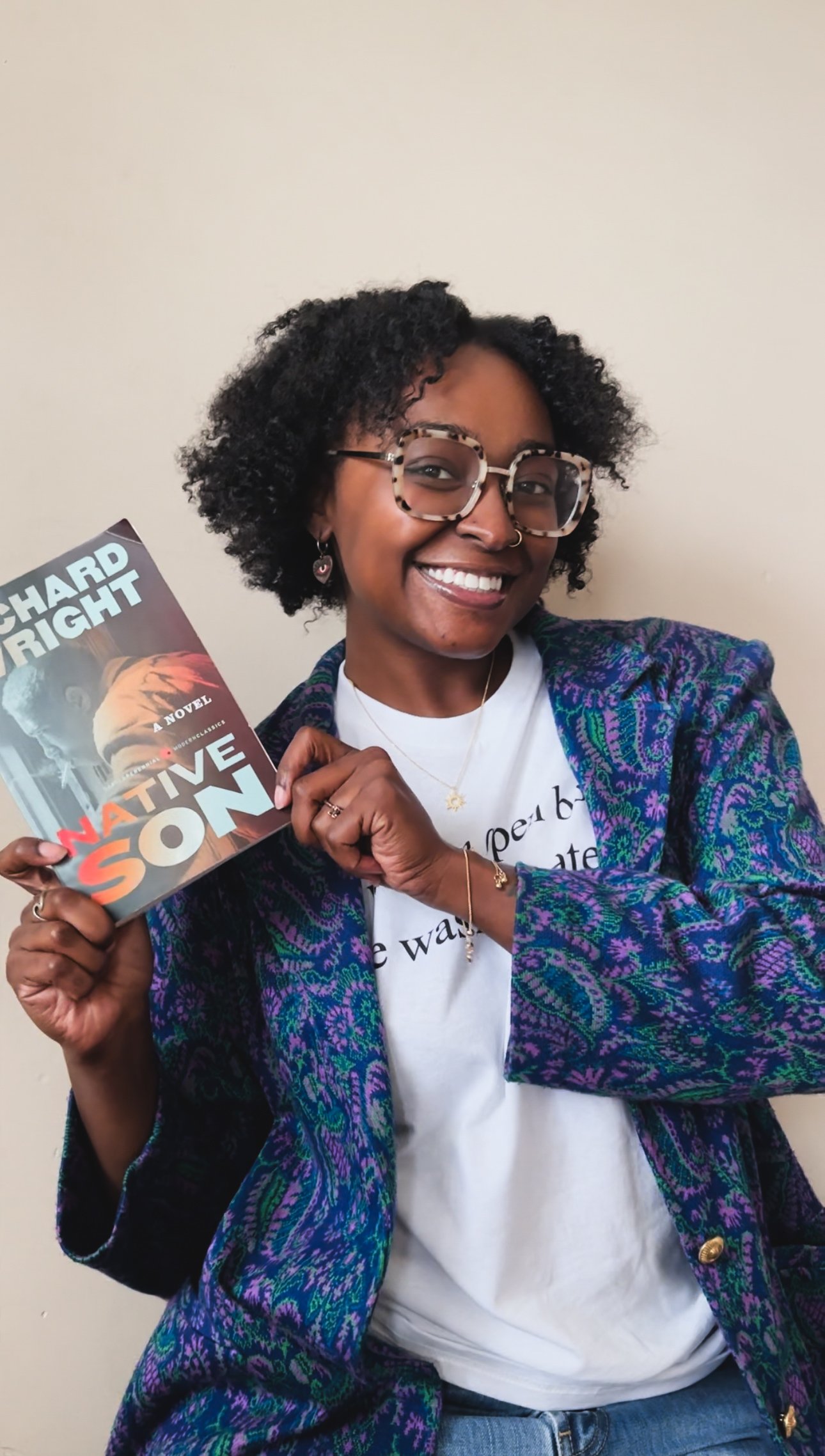Book Review: Native Son
Putting my thoughts into words left me feeling stunted. Beyond the extensive conversations I’ve had during my book club’s discussions last week (February 2024 Eclectix the Book Club pick), random reflective outbursts with loved ones, and simply allowing the themes of Native Son by Richard Wright to gnaw at my brain — I think I’ve finally narrowed it down.
Bigger Thomas embodies the stereotypes and fears associated with Blackness, specifically Black men. I can understand why Native Son may read as a problematic piece of literature but considering the time it was published — I’m glad Richard Wright wrote it. For reasons that are evident to most, we can transport this “Bigger Thomas” character into any time period up until present day (and unknowingly how much further in future) and it read the same. Is it vile? Yes. As is any other social horrors that we see to this day.
What was different for Bigger Thomas is that we not only see this societal imposed threat, but the internalized threat. How fearful this young man is and how his detachment from reality led him to certain points in his life. There wasn’t one incident, there were multiple “small” ones that shaped him. Over the course of the book we watch closely as Bigger retracts into an inferior childlike state out of fear and a unknown desire to survive. He’s merely a boy in a man’s body and from one transgression to another, his mental health deteriorates while simultaneously revealing the truth of the world to himself.
Bigger reveled in his sight once he was privy to the world he was living in, and I think that frightened him more than anything. There’s comfort in being blind to the social horrors. We all know the saying “out of sight, out of mind”, and Wright made it a point to make any reader aware of what was happening in Bigger’s adverse world.
There were moments where Wright would repeat the same discoveries over and over, essentially beating a dead horse, to ensure there’s no way the reader could miss out on the themes that he was laying out plain & clear. Each character served a motive bigger than their individual presence, and that is something I favored the most.
Native Son is a door to a world that many willingly overlook, yet know how to take advantage of for their personal gain. This one won’t be everyone’s favorite, and I don’t think it was written to be favored but to be honest and incite meaningful & thoughtful conversations.
